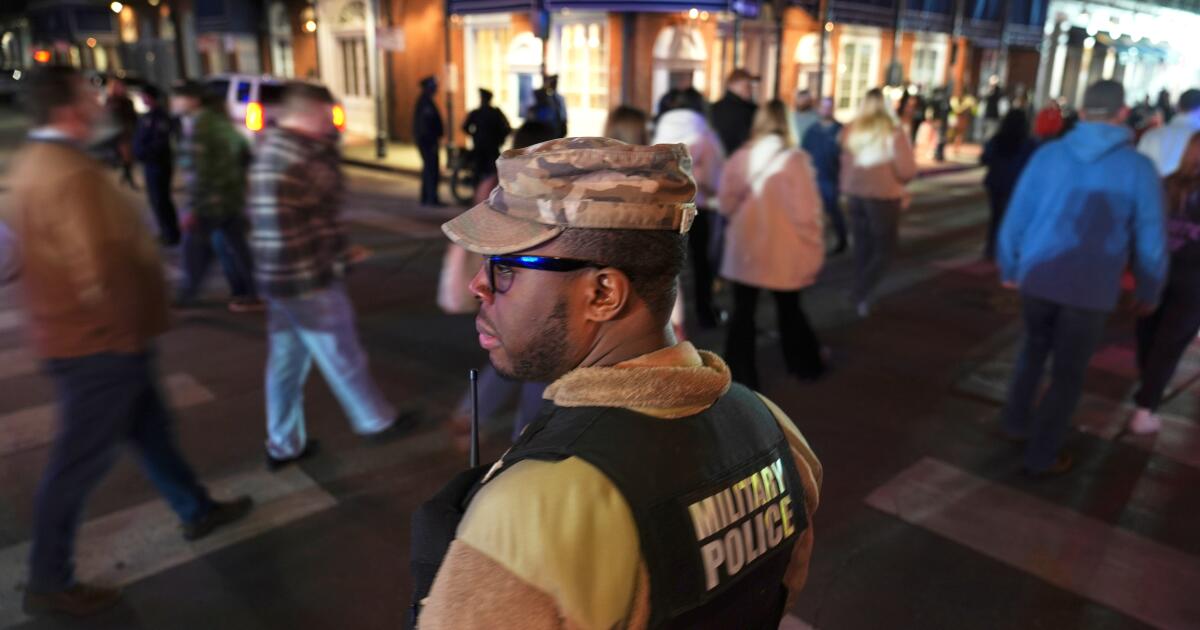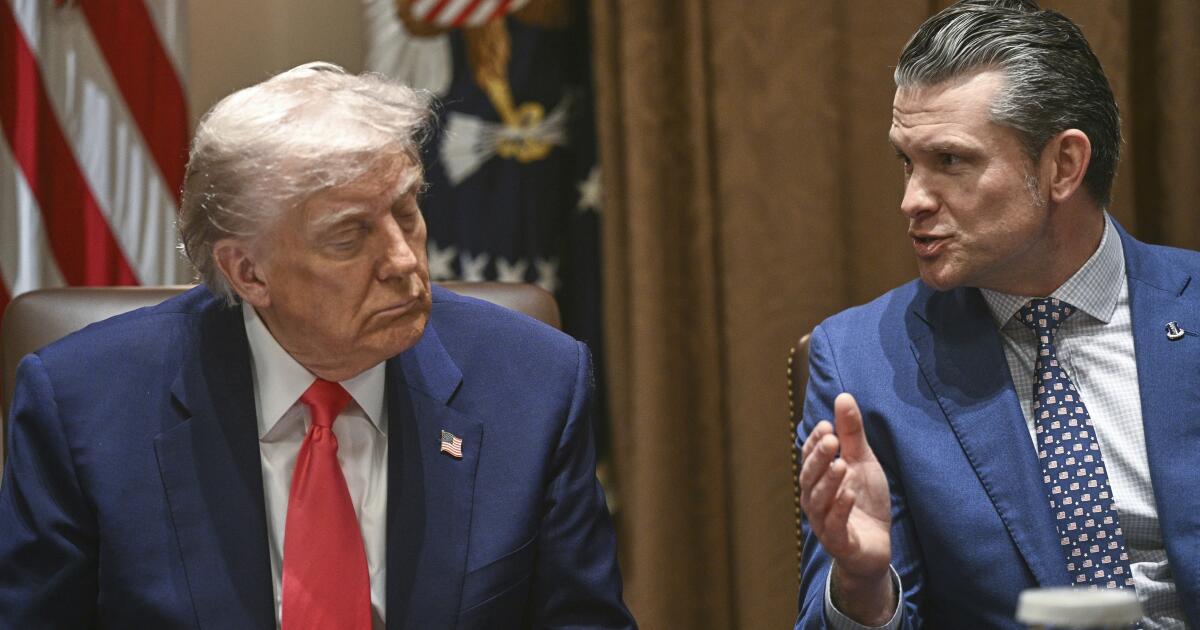National Guard to patrol New Orleans for New Year’s a year after deadly attack
NEW ORLEANS, La. — A National Guard deployment in New Orleans authorized by President Trump will begin Tuesday as part of a heavy security presence for New Year’s celebrations a year after an attack on revelers on Bourbon Street killed 14 people, officials said Monday.
The deployment in New Orleans follows high-profile National Guard missions the Trump administration launched in other cities this year, including in Washington and Memphis, Tennessee. But the sight of National Guard troops is not unusual in New Orleans, where troops earlier this year also helped bolster security for the Super Bowl and Mardi Gras.
“It’s no different than what we’ve seen in the past,” New Orleans police spokesperson Reese Harper said.
The Guard is not the only federal law enforcement agency in the city. Since the start of the month, federal agents have been carrying out an immigration crackdown that has led to the arrest of at least several hundred people.
Harper stressed that the National Guard will not be engaging in immigration enforcement.
“This is for visibility and just really to keep our citizens safe,” Harper said. “It’s just another tool in the toolbox and another layer of security.”
The Guard is expected be confined to the French Quarter area popular with tourists and won’t be engaging in assisting in immigration enforcement, Harper said. Guardsmen will operate similar to earlier this year when they patrolled the area around Bourbon Street following the vehicle-ramming attack on Jan. 1.
The 350 Guard members will stay through Carnival season, when residents and tourists descend on the Big Easy to partake in costumed celebrations and massive parades before ending with Mardi Gras in mid-February.
Louisiana National Guard spokesperson Lt. Col. Noel Collins said in a written statement that the Guard will support local, state, and federal law enforcement “to enhance capabilities, stabilize the environment, assist in reducing crime, and restoring public trust.”
In total, more than 800 local, state and federal law enforcement officials will be deployed in New Orleans to close off Bourbon Street to vehicular traffic, patrol the area, conduct bag searches and redirect traffic, city officials said during a news conference Monday.
The extra aid for New Orleans has received the support of some Democrats, with Mayor LaToya Cantrell saying she is “welcoming of those added resources.”
The increased law enforcement presence comes a year after Shamsud-Din Jabbar drove around a police blockade in the early hours of Jan. 1 and raced down Bourbon Street, plowing into people celebrating New Year’s Day. The attacker, a U.S. citizen and Army veteran who had proclaimed his support for the Islamic State militant group on social media, was fatally shot by police after crashing. After an expansive search, law enforcement located multiple bombs in coolers placed around the French Quarter. None of the explosive devices detonated.
In the immediate aftermath of the attack, 100 National Guard members were sent to the city.
In September, Gov. Jeff Landry asked Trump to send 1,000 troops to Louisiana cities, citing concerns about crime. Democrats pushed back, specifically leaders in New Orleans who said a deployment was unwarranted. They argued that the city has actually seen a dramatic decrease in violent crime rates in recent years.
Cline and Brook write for the Associated Press. Cline reported from Baton Rouge.

